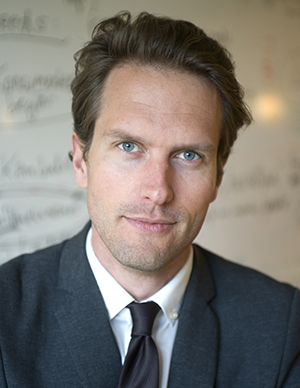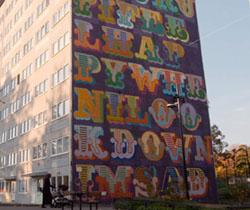New EU project aims to promote social innovations
The new EU-project SEiSMiC, promoting social innovation and addressing urban challenges across Europe, will now be launched in Brussels. Chalmers researcher Karl Palmås is one of the people behind Sweden's participation in SEiSMiC. The Swedish project partners are Mistra Urban Futures and IQ Samhällsbyggnad, a Swedish Centre for Innovation and Quality in the Built Environment.
 Karl, what is the project about?
Karl, what is the project about?
- SEiSMiC, short for Societal Engagement in Science, Mutual Learning in Cities, focuses on promoting social innovations that can help EU members meet the urban challenges that they are facing. Social innovations are an innovative way to solve social problems, which often start from small-scale experiments, which then are developed in interaction between civil society, government and business. Crowdfunding could be seen as a social innovation. The Swedish Agency for Economic and Regional Growth has highlighted the organization Equalisters as a social innovation. The project is part of the EU's Seventh Framework Programme focus on "Science in Society", which is reflected in the citizen-based inventory of urban problems and potential solutions to them.
There are many countries and partners involved, how is the project coordinated?
- In practical terms, the project is based upon ten national networks that are established as part of the project, one in each participating country. In these networks, consisting of multiple stakeholders and citizens, the country's local challenges and social innovations are discussed. The work done in each country is then connected to the others. The Swedish network is run by Mistra Urban Futures - represented by Joakim Forsemalm, University of Gothenburg, and my self - as well as the organization IQ Samhällsbyggnad.
What will happen when the project is launched in Brussels in the end of November?
- The Swedish network had its initial meeting on August 22nd in Stockholm. On November 24-25th the Swedish representatives will meet representatives from other countries in Brussels. It is the projects first open transnational meeting and EU's urban challenges and associated social innovations will be presented and discussed.
What will happen after the meeting?
- After Brussels, the Swedish network will meet again and discuss how to drive a particular sub-question forward. The idea is that each national meeting will be accompanied by a transnational meeting, where that particular sub-question is discussed again.
How do you hope that the research will influence society?
- The project's approach - "public participation in science" and "mutual learning" - means that the research is very much already a part of the community. Although, this is not enough to create change connected to the challenges our cities are facing. This joint knowledge must be transformed into joint action. On a more general level, I also see that the project can contribute to the knowledge of how a major political entity, as the EU, can promote social innovation.
About SEiSMiC
Social innovation, mobilisation and mutual learning in the urban context are the focus of the SEiSMiC project. SEiSMiC, short for Societal Engagement in Science, Mutual learning in Cities, is a platform to discuss and explore paths of integrated urban development. 13 partners from 10 European countries: Austria, Belgium, Czech Republic, Germany, Hungary, Italy, Netherlands, Norway, Sweden, Turkey and the United Kingdom, are involved in the project.
The national networks that will be set up in these 10 European countries will focus on engaging society in urban research. As such, these networks will include civil society organizations, media, education establishments, science academies, museums, science centres, research performing or funding organizations, industry/business and policy makers. Bringing these networks together and creating a structured dialogue will build a bridge between the scientific community and society.
The overall objective is to influence calls and initiatives at EU level and in particular the European Union’s Urban Europe and Joint Programming Initiative.
About Karl Palmås
Karl Palmås is an Associate Professor at the Technology Management and Economics department at Chalmers.
Read more
SEiSMiC project page
SEiSMiC International Launching Event
Start-up meeting for the Swedish SEiSMiC-network (in Swedish)
Press invitation Launching Event (in Swedish)
Social innovations in EU
Photo: Jan-Olof Yxell, Chalmers







